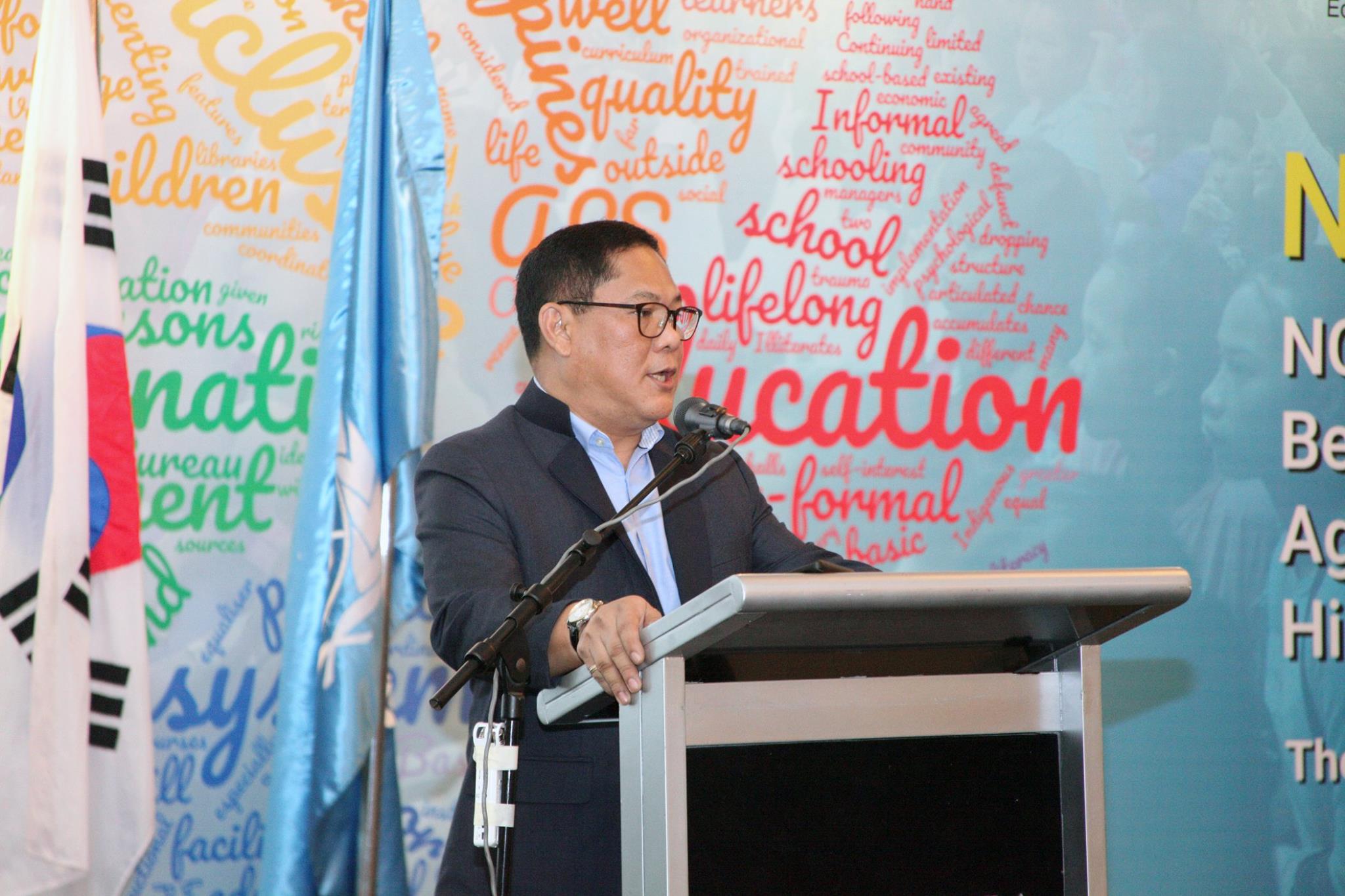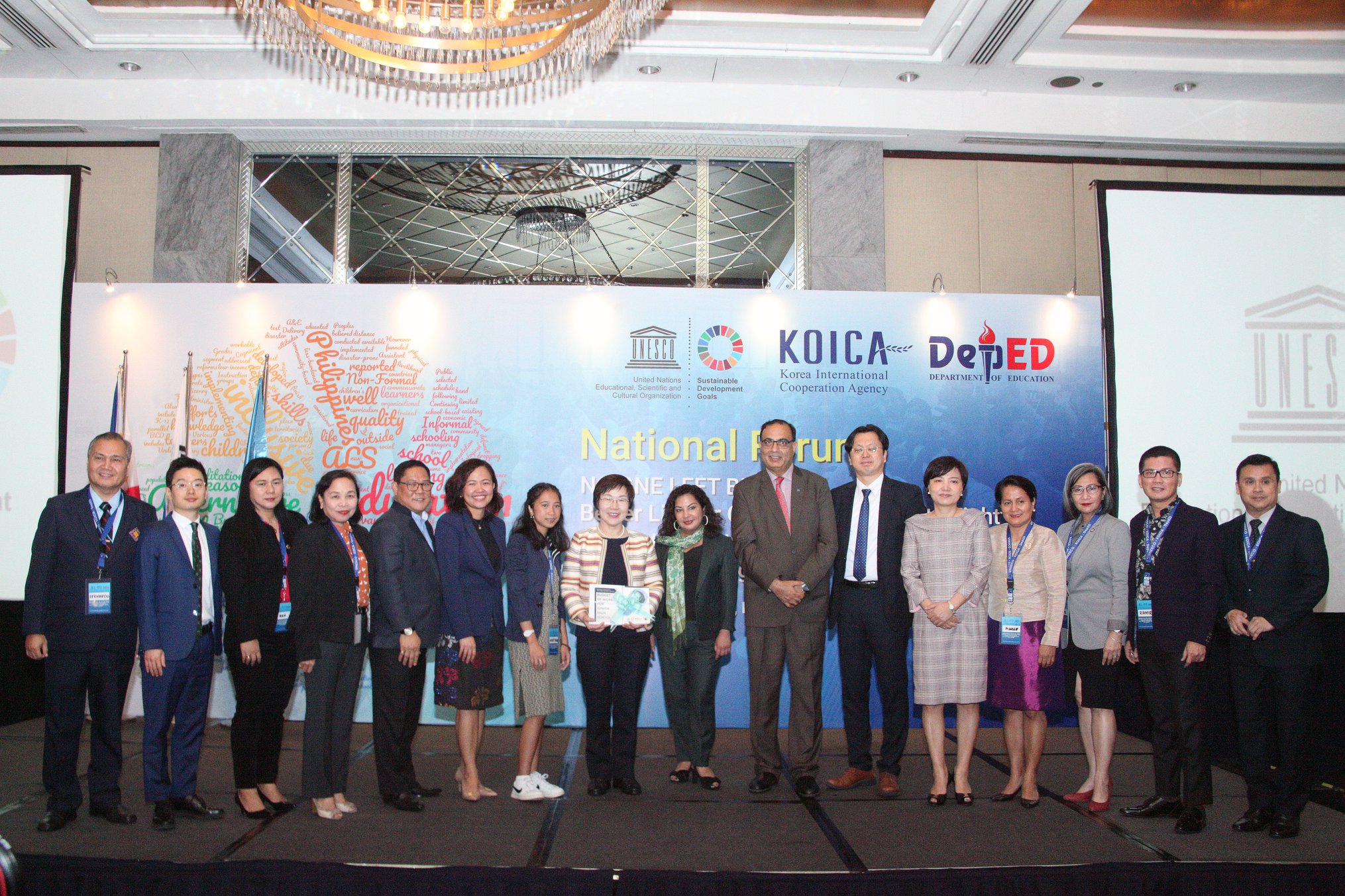MAKATI CITY, March 1, 2019 – The Department of Education (DepEd), United Nations Educational, Scientific, and Cultural Organization (UNESCO) – Jakarta Office, and Korea International Cooperation Agency (KOICA) moved to further strengthen the Alternative Learning System (ALS) Program through the conduct of a national forum on February 28 at The Peninsula Manila in Makati City.
The national forum entitled, “No One Left Behind: Better Life for Out-of-School Girls to Fight Against Poverty and Injustice in the Philippines – Hindsights, Insights, and Foresights,” gathered around 140 participants composed of DepEd key officials and personnel from the central, regional, and division offices. These also include ALS mobile teachers and district coordinators, as well as representatives from project implementing partners.
The forum aimed to present the accomplishments of the project since its implementation, specifically on the capacity building for ALS mobile teachers, district ALS coordinators and ALS girl-learners. To better understand the current implementation of ALS, the participants had discussions and proposed recommendations for capacity building, and the development of learning modules and teachers’ guides.
Better Life for Out-of-School Girls Project
UNESCO-Jakarta and KOICA, in collaboration with DepEd, initiated the Better Life for Out-of-School Girls Project in July 2017 in consideration of the out-of-school girls in typhoon-damaged Tacloban City and its vicinity. This also supports the Philippine government’s aspirations for a strengthened ALS in the country within the framework of the Sustainable Development Goal 4 (SDG 4) to provide quality, accessible, and equitable education and lifelong learning for all. The project is set to run until June 2021.
DepEd Assistant Secretary for Public Affairs Service, ALS Program and Task Force G.H. Ambat mentioned reports showing that majority of the out-of-school learners are females. However, she added that based on data and from the accounts of ALS mobile teachers, there are more males enrolled in ALS classes than females.
“If there are more girls dropping out of schools but there are more boys enrolled in ALS classes, where are the girls? If ALS is delivered free, why are they not going to our classes? That’s why we are conducting various efforts, together with our partners, to address this,” she said.
Moreover, Ambat underscored the role of the Department and its partners in uplifting the lives of all learners across the country: “The point of us being successful is so that we can help those who are having a hard time in becoming one. We, in DepEd, should be helping those who have been at the disadvantage from the time that they are born, regardless of their gender or by their ethnic roots.”
ALS Version 2.0
Undersecretary for Planning and Field Operations Jesus Mateo highlighted the rollout of the enhanced ALS curriculum, in line with the 10-point agenda of DepEd under the administration of Secretary Leonor Magtolis Briones.
“DepEd has been pursuing reforms in ALS in order for it to be aligned with the K to 12 curriculum in formal education. We are now rolling out the version 2.0 of ALS program which is substantially different from the existing one. There are changes in the system components, particularly in learning materials, learning delivery system, learning environment, learning assessment, certification system, and in the system support component,” Mateo explained.
Both Ambat and Mateo extended their appreciation to UNESCO and KOICA for their unwavering support to the programs and projects of the Department which are geared toward the delivery of quality, accessible, relevant, and liberating education for all learners.
Other present at the event were UNESCO National Commission for the Philippines Secretary-General Lila Ramos Shahani, UNESCO–Jakarta Office Director Shahbaz Khan, KOICA President Lee Mikyung, and other key officials and representatives.
END





